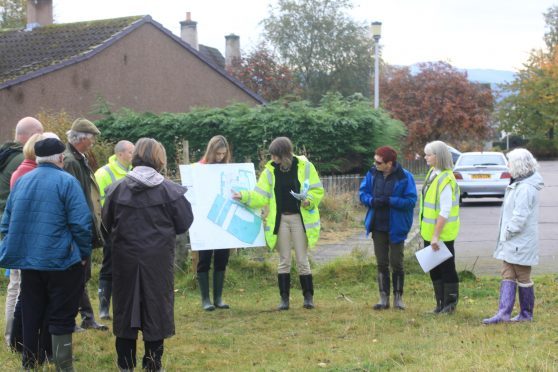Controversial plans for 53 new homes in a Strathspey town have been approved by the Cairngorm National Park Authority CNPA).
Seafield and Strathspey Estates will build 43 houses and flats and 10 affordable homes on land near Seafield Avenue, north west of Beachen Court.
However there were several objections to the plans covering a range of issues, the latest of which included the discovery of a family of protected otters in the vicinity.
A third application from the owners of the Seafield Lodge Hotel to convert property into another six flats and one house was also approved.
The two developments between Seafield Avenue and Beachen Court – which were subject to site visits in the morning – are on areas designated for housing in the Local Development Plan and were recommended for approval by planners.
During last Friday’s meeting at the Grant Arms Hotel, Eleanor Mackintosh, CNPA planning committee convener, said: “After thorough consideration of all the issues concerned with these three applications before us today, I am happy to support them. They are appropriate in their nature and I obviously welcome the provision of new affordable homes in Grantown.”
Following the meeting, a spokesman for Badenoch & Strathspey Conservation Group said: “It is disgraceful that the CNPA have approved this development with such inadequate scrutiny. In addition, they are cutting out community input by relying on conditions. In a meeting that had to be cut short due to the hall booking, the Authority did not properly address such basic issues as landscape, flooding, wildlife and neighbours’ amenity.”
Local residents who objected to the plans highlighted major concerns over traffic congestion near a Co-op shop, flood risk and impact on loss of habitat for plants and wildlife.
Long-standing objector Gordon Bulloch, who gave a presentation during the meeting, said the manner in which the CNPA managed and approved the application for the building of 53 homes on a greenfield site raised a “number of serious concerns”.
Mr Bulloch claimed that both the traffic impact and flood risk assessments for the plans were inadequate, and felt none of these objections were rebutted by contrary evidence.
He added: “All in all CNPA carried out a ‘rubber stamping’ job.”
